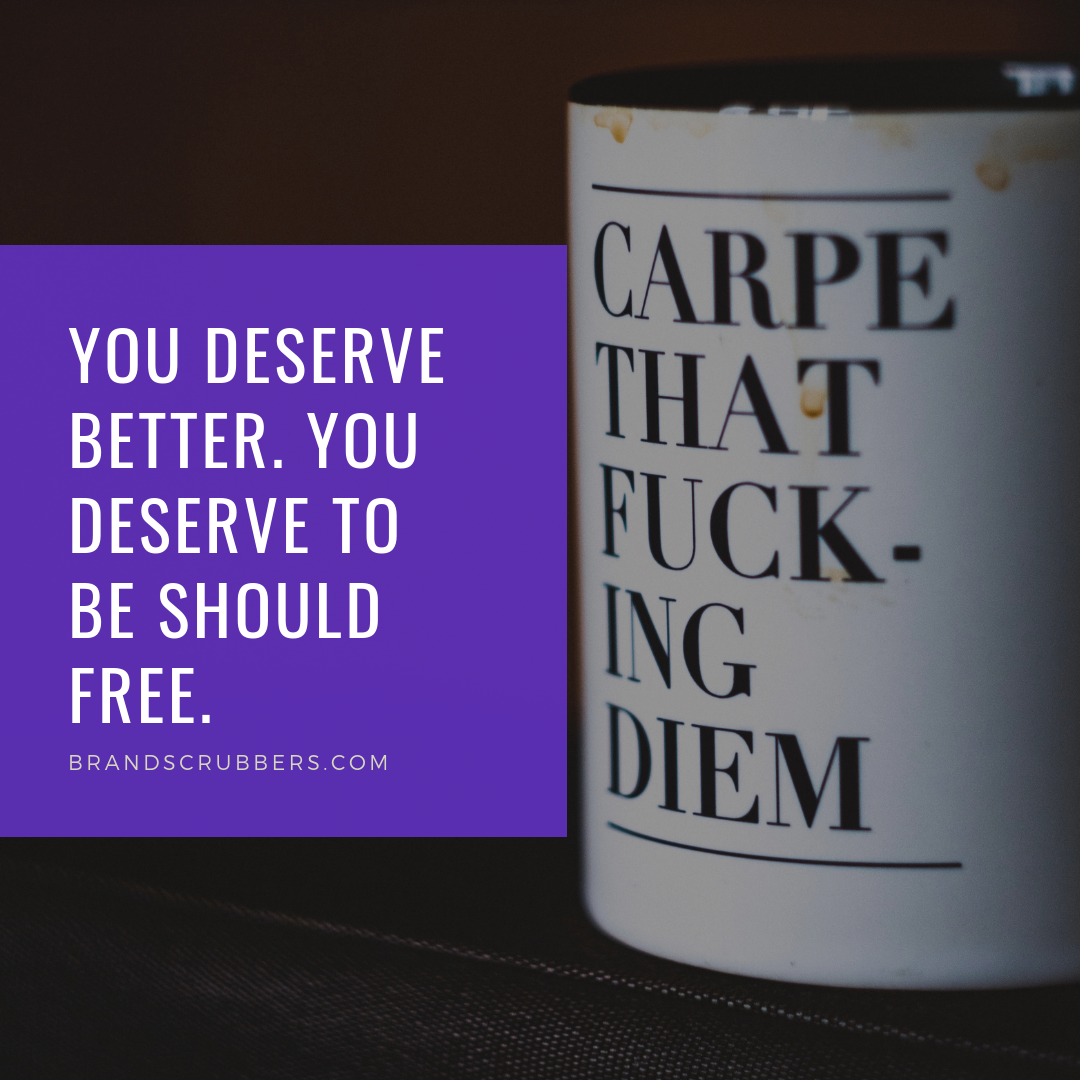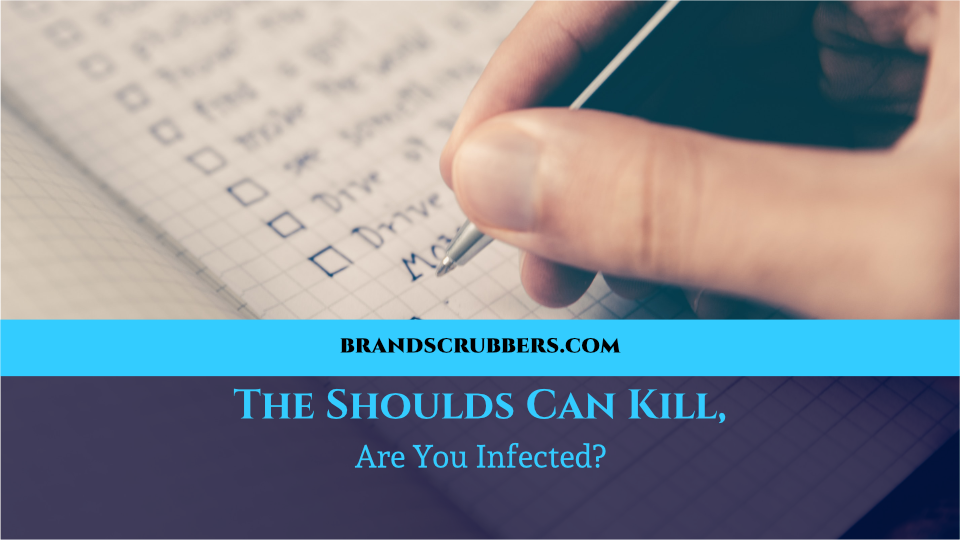Why Do We Compulsively Should?
Human beings are critical and judgmental by nature. It’s part of our survival instincts. First impressions, which our minds create using judgments, can take place in one-tenth of a second. They are so inherent, they are instant. The problem with Should is that it takes the human penchant for judgment and turns it into a tool of self-harm. Rather than relying on our judgments solely for self-preservation, we use them to dictate how we, or others around us, believe we need to be. Now, Should is often recognized as a guilt word of sorts. It implies that one hasn’t filled a duty or obligation and criticizes action. Part of this comes from the direction social media has guided us as a society. It’s easier than ever now to show others what we do and why we are right and thereby shame others for not doing so. Heck, it’s used as a power word in blog titles across the spectrum. Have you looked it up? Designed to catch your attention and pull on that innate part of you that wants to be judged positively. Telling you what you should or should not do to influence you, to catch your click. You know what though? Should can be downright harmful. Especially in the contexts above.
Why Shoulding on Yourself is Harmful
Should implies that you are wrong if you don’t do something. It makes us feel like we need to tow the line to be approved of and accepted. It’s got this whole negative connotation and that often drives negative emotions. Should f*&$ing bad for you, man. It prevents or hinders you from looking at a situation objectively. If you are unable to be objective, it’s going to be considerably harder to make the most effective choice. In some situations, we need to rely on our ability to choose the lesser of two evils. (Speaking of choice, you always have it, for better or for worse. Don’t believe me? Read this.) Shoulding on yourself can shut you down to possibilities. It can close your mind and set your emotions running wild. Given that it’s not a necessary part of a conversation, you need to eliminate it. Let me share how I got my shoulds out.
How Not to Should
This is my favorite part because I get to tell you that you can remove the word should from your vocabulary. It won’t be easy, but it works. It’s the same process I used to remove the word “okay” from my business communications, or the word just. I’m not perfect, I still slip up, but I feel better for being free of them.
It takes 3 steps:
- Awareness
- Replacement
- Repetition
Awareness:
The first thing you need to be is aware of how often you are using the word and when. Until you gain awareness, you won’t be able to replace the behavior. Much like with addictions.
The easiest way to do this is to enlist everyone you know. Share with them your goal and tell them to call you out every time you use the word should. Every time.
It’s a little daunting at first, because you may not realize how often it pops up. Your focus will stay in awareness until you get to the point where YOU notice you’ve said the word before anyone else calls you out. This is the point where you’re going to be able to start replacing.
Replacement:
Now that you can recognize that you’re inserting the word, when it happens, stop and repeat your sentence with the appropriate word in it’s stead.
Example: I should get my hair cut because it’s not in style anymore.
Rephrase 1: Others think I need to adjust my appearance because it’s not in style. I feel….
Rephrase 2: I’m not happy with my current haircut because it doesn’t make me feel the way I want.
Rethinking the truth behind the statement and replacing it will help you slowing work it out. If you truly believe that you SHOULD do something, replace it with need. Need has a different implication and does not leave the negative taste in your mouth.
Repetition:
It takes time folks. When I was doing call center work and needed to expunge the word okay, it took me over 3 months and even then, it cropped up from time to time. Still does.
That’s why repetition and dedication are needed. Don’t be hard on yourself, try to be patient, and continue to rinse and repeat.
The great part is that once you’ve mastered this process, you can use it for almost anything. I tend to say “sorry” a lot, but I’m currently using this process to reduce that. No one can be sorry for everything, right? I identified the need to change and I am. Handy stuff.
Living Life Free of Shoulds
If I’m honest, shoulds are engrained in us now. I feel that this is a behavior replacement we could all be working at our whole lives and one of the most important.
I work with entrepreneurs and business owners consulting on strategy all the time. Do you know what I hear MOST? That they feel they SHOULD be doing this or SHOULD be doing that.
“Well, I know I should be building an email list…”
“I should have a successful podcast by now.”
So I explain that they need to harness the emotions and efforts placed in shoulding on themselves and put it towards more effective efforts. Don’t waste valuable time and energy on something that doesn’t support you in any way.
You deserve better. You deserve to be should free.



Recent Comments